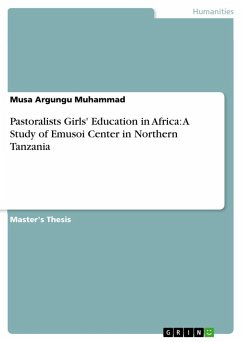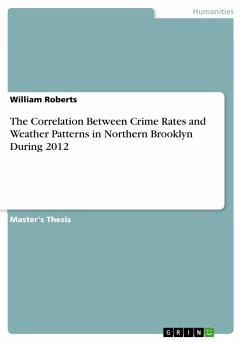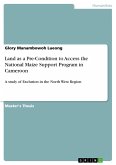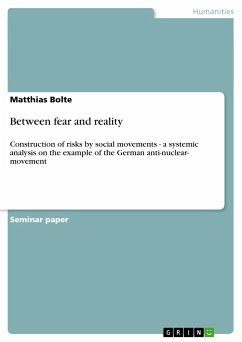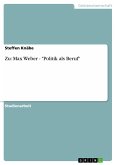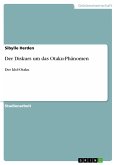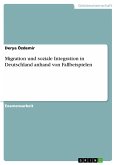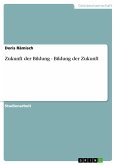Master's Thesis from the year 2008 in the subject Sociology - Culture, Technology, Nations, grade: 56, University of Birmingham (School of Government and Society (formerly School of Public Policy)), course: Rural Development (International), language: English, abstract: This dissertation has found that providing services such as infrastructure and welfare services to groups of people who are on the move, has historically been very difficult. Providing services such as education, to a society which is either migratory or just beginning to stabilize, and does not value education, particularly for girls, is seemingly difficult. The Tanzanian Maasai people are the perfect example of such a society. Many problems adversely affect their girls' enrolment, regular attendance and performance in school: lack of schools, the distance they must walk to go to school, a dangerous environment to walk through, fees, lack of food, poor standards of education in the schools, lack of classrooms, books, desks, teachers and learning supplies, also the transhumant nature of the society and the customs and culture of the community. All these factors are found to greatly affect both boys and girls, but have the greatest impact on girls.However, the Emusoi Center has provided an approach for keeping these girls in school by involving pastoralist NGOs, churches, government leaders and members of parliament from the pastoralist area. Religious leaders identify possible students, government and Parliament Members use their power to ensure parents allow their girls to attend school, especially in instances where the girls are forced into marriage. The Center monitors the students' progress at the end of every term and maintains a close contact with the schools in order to follow up the students' progress. The Center also involves students who have finished their O-level studies as student's mentor and as a role model to empower the new comers and those already enrolled. They accompany the new students to schools, hospital, and also help with administrative task such as accounting and secretarial work.

